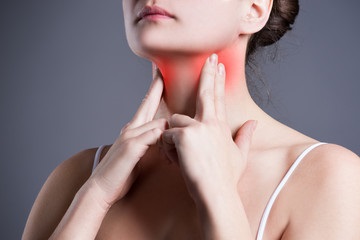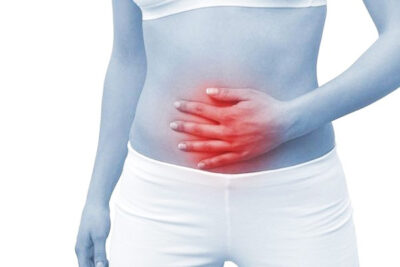
Ancient Ayurveda Recipes for Healthy Living
by Vanita Dahia What did our ancestors eat? One ancient

by Vanita Dahia
Do you feel tired and cold?
Do you suffer with swollen joints or have a poor memory?
Difficulty in losing weight?
You may need to check the health of your thyroid.
Your thyroid gland is located in the neck area, controlling how quickly the body uses energy, makes protein and works with the sex hormones, adrenal glands and neurotransmitters. Every cell in the body has receptor sites for thyroid hormones! If your thyroid gland is not functioning optimally, you are likely to experience multiple symptoms.
Thyroid hormones help the cells function to produce energy. The thyroid gland produces more T4 (80%), but it is inactive. T3 is 20% of the thyroid hormones and is active. The majority of T4 is converted to T3 inside the cells of the body.
Often, a Dr will assess TSH levels are report normal levels. The reference range for TSH is wide but optimally should be between 1 and 2 munits/l. Levels outside of this range may represent an under or overactive thyroid.
Hypothyroidism (underactive thyroid) occurs when the thyroid gland produces too little thyroid hormone, when there is decreased conversion from T4 to T3, when there is an overproduction of reverse T3 (Wilson’s syndrome), or when the body is not efficiently using thyroid hormone.
Hypothyroidism can cause anaemia, a low body temperature and heart failure. A large proportion of the population suffers some degree of hypothyroidism; however, the majority of those cases go undiagnosed.
Low thyroid function may be characterised with symptoms of:
Hashimoto’s thyroiditis: this thyroid disease is an auto-immune condition which antibodies in the blood destroy tissues in the thyroid gland. As a result, the thyroid decreases in size and reduces its production of thyroid hormones.
Therapeutic hypothyroidism: could result from a thyroidectomy (surgical removal of the thyroid) or treatment with radioactive iodine.
Thyroid Goitre: due to a deficiency of Iodine in the diet represented as a goitre (swelling) in the neck
Euthyroid Sick Syndrome: Free tri-iodothyronine (T3) levels drop with normal thyrotropin (TSH). Free thyroxin (T4) and reverse T3 levels vary according to the underlying disease.
It is important to address underlying adrenal stress with adrenal adaptogenic herbs, exercise and relaxation in line with managing the thyroid dysfunction. Because the thyroid gland is susceptible to heavy metal toxicity, check heavy metal status and detoxify is needed.
Reduce cruciferous vegetables like broccoli raw, cabbage, Brussels sprouts, cauliflower, kale and spinach which contain isothiocyanates that may block iodine utilisation.
Thyroxine: synthetic versions of thyroid hormone such as oroxine (T4) or levothyronine (T3) are generally used. A porcine derived thyroid extract can be compounded (a natural combination of T4 and T3). Patients respond well to the compounded versions as it can be compounded in sustained released dosage forms.
Alpha lipoic Acid (ALA)
Environmental toxicity, PCB exposure, heavy metal toxicity are endocrine disruptors affecting iodine uptake into the thyroid which drives down thyroid function by displacing active T3 from thyroid receptors. ALA has been shown to increase both intra- and extracellular levels of glutathione, increasing heavy metal detoxification.
Herbs and nutrients
Herbs are beneficial for management of thyroid imbalance. Herbal adaptogens can support HPA dysfunction, fatigue, nervous debility, and help to increase vitality, Korean and Siberian ginsengs, withania and rhodiola, have scientific evidence for benefit in the attenuation of physical and mental fatigue associated with stress Withania somnifera is an adaptogenic herb that has been shown to attenuate the negative effects of chronic stress by acting as a GABA mimetic agent by binding to GABA receptors and also assist with energy production.
Iodine, selenium, zinc, tyrosine and vitamin E are essential nutrients which assist T4 to convert to activated T3 via the selenium dependant enzyme, iodothyronine deiodinase. Zinc and vitamin E also provide antioxidant activity via limiting lipid peroxidation and restricting free radical damage. Selenium directly binds to toxic metals and can serve as a heavy metal chelator.
Iodine is required for the synthesis of thyroid hormones T3 and T4 which control a variety of biological and physiological processes in the body.
Hyperthyroidism occurs when the thyroid gland produces excessive amounts of thyroid hormone.
Symptoms of overactive thyroid is less common and may present with:
Graves disease is an autoimmune disease which appears as a goitre in the neck
Toxic Nodular Goitre: one or more nodules (benign tumours) in the thyroid produce an excess of thyroid hormone.
Secondary Hyperthyroidism: the pituitary gland stimulates the thyroid to overproduce thyroid hormones
Pharmaceutical medication
Radioactive iodine
Thyroid depressants like propylthiouracil and carbimazole are used to decrease production of thyroid hormone
Beta-blocking drugs are used less frequently to control heart symptoms like slowing heart rate, reducing tremors, and control anxiety
Herbs and nutrients
Rehmannia glutinosa and Melissa officinalis are herbs used for the relief of irritability and nervous unrest. Rehmannia glutinosa has been shown to lower adrenergic receptor affinity and peripheral conversion of T4 to T3.
Rehmannia glutinosa is traditionally used in Chinese medicine as a yin tonic to improve symptoms of heart fire including insomnia and irritability. Rehmannia glutinosa has the function of antagonising the suppressive effect of glucocorticoids on the hypothalamus-pituitary-adrenal axis.
Melissa officinalis is used to inhibit conversion of T4 to T3 and disrupt TSH binding to its receptor.
Basal Body Temperature (BBT)
An easy way of assessment of thyroid dysfunction can be an assessment of body temperature as a low body temperature is a major clinical sign of hypothyroidism. Measure BBT through axillary (underarm) testing. Normal body temperature is 36.6-37 deg C. If temp is consistently lower than 36.5deg C, ask your health care practitioner to measure thyroid status.
Lugols iodine Skin Patch test
The Iodine Patch Test theoretically measures how quickly the body absorbs iodine through the skin. Apply 2 drops of Lugols Iodine to a patch of skin on inner wrist. Lugols stains the skin. The rte of absorption is translated as the colour patch disappears. If it disappears quickly, iodine is absorbed and is needed by the body. If the stain is persistent iodine may be sufficient. This test is by no means conclusive and is therefore advisable to substantiate with a pathology lab test for iodine status.
Pathology Lab Testing
A comprehensive blood or blood spot test is recommended.
Analytes measured are TSH, T3, T4, rT3 and thyroid antibodies, namely TSH receptor, Antithyroglobulin and thyroid Peroxidase Antibodies.
Thyroid cofactors, Iodine, selenium and Tyrosine can be measured in a urine test.
Iodine status and the rate of iodine excretion (loading Iodine) can be measured in a urine specimen.
Is your thyroid in check? Take the thyroid questionnaire
Want to know more? Contact us for assessment or management or Test your thyroid.

by Vanita Dahia What did our ancestors eat? One ancient

Have you ever heard of anyone preventing their memory decline

How to Stop Indigestion and Acid Reflux by Vanita Dahia

Copyright © Vanita Dahia 2026. All rights reserved.